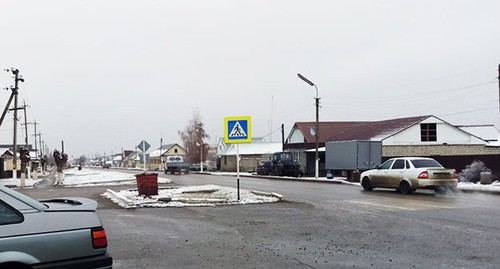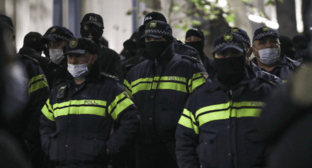
26 December 2020, 08:57
"Sharia patrols" case arose amid conflict of secular vs. religious norms in Caucasus
They often try to impose religious norms on believers in the Caucasus, the experts interviewed by the "Caucasian Knot" in connection with the case of the so-called "Sharia patrols" in the village of Anzorei.
The "Caucasian Knot" has reported that in late October, the court ruled to place residents of the Leskensky District, aged 24-43, into custody; according to the police, they were members of an extremist community and used force against those who did not share their views. Relatives of those accused, as well as other Anzorei villagers, interviewed by the "Caucasian Knot" correspondent, said they knew nothing about any Sharia patrols.
The Caucasus is indeed facing cases of pressure from religious groups that seek to control people's behaviour, said Ruslan Kurbanov, a journalist and Islamic scholar.
He has emphasized that "the secular state does not accept the assumption of legalized and legitimate functions of the use of violence, coercion by anyone, by any group or force, except for the state itself."
The desire to live in line with religious norms and local customs often conflicts with the law. "For example, has a father any right to use force against his children and younger relatives? Has the youth any right to unite in groups in order to monitor the moral nature of their peers or older people? Unfortunately, very often in the Caucasus, as we see in Dagestan, Ingushetia and Kabardino-Balkaria, young people fail to notice thin boundaries, cross them and thereby violate the law, either explicitly or implicitly," Mr Kurbanov has concluded.
Oleg Orlov, a member of the Human Rights Centre (HRC) "Memorial", has compared the idea of Sharia patrols with awarding the revived Cossack movement in Russia with power functions. "I don't know the details of the case; but I'm not sure that it was fabricated. We've probably faced a trend. And, in my opinion, such a trend is dangerous and unacceptable – no Islamic patrols, no Cossack patrols. I don't understand why an Islamic patrol is better than a Cossack one, when people who call themselves Cossacks walk around with whips and put things in order that they consider a proper one," Mr Orlov, a rights defender, told the "Caucasian Knot" correspondent.
This article was originally published on the Russian page of 24/7 Internet agency ‘Caucasian Knot’ on December 25, 2020 at 08:26 pm MSK. To access the full text of the article, click here.
Author: Rustam Djalilov Source: CK correspondent




